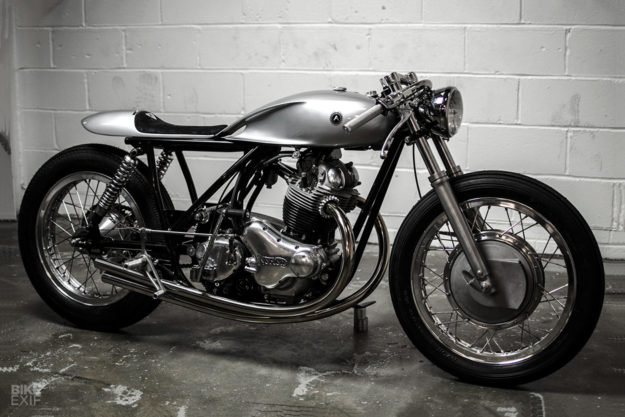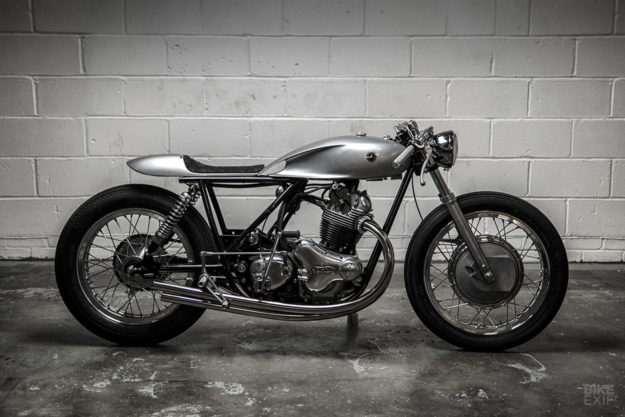
Some builders pick a formula and repeat it. Others reinvent the wheel every time and stick to one-offs. Auto Fabrica‘s methodology lands somewhere in the middle, and it’s consistently produced spectacular results.
The British shop will typically pick a readily available donor bike, completely transform it, and then produce a few variations on the design, tweaking it as they go. But for their latest project, they’ve chosen a very unusual donor bike—the legendary Norton Commando.
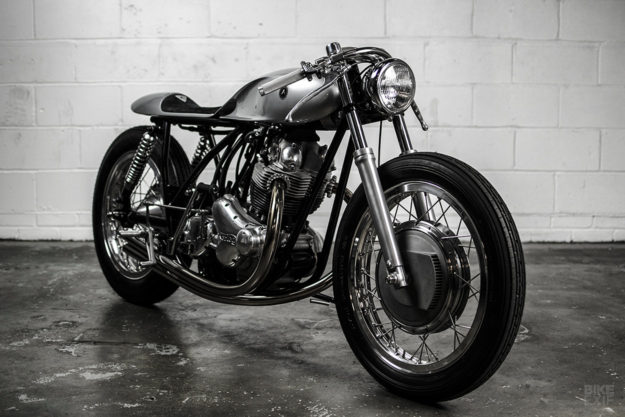
Auto Fabrica’s client wanted a ‘Type 6‘—a Yamaha XS650 custom that that first surfaced three years ago. But Bujar, Gazmend and Toby weren’t keen on doing another XS650, so they’ve applied the styling cues of the ‘6’ to a 1971 Norton Commando. And it looks even better.
“We had to rethink our approach,” the boys tell us. “It’s the first British bike we have worked on with an external oil tank. The inherent issue was: ‘Where do we put the oil, and still execute a design which is clean, and retains our Auto Fabrica DNA?’”
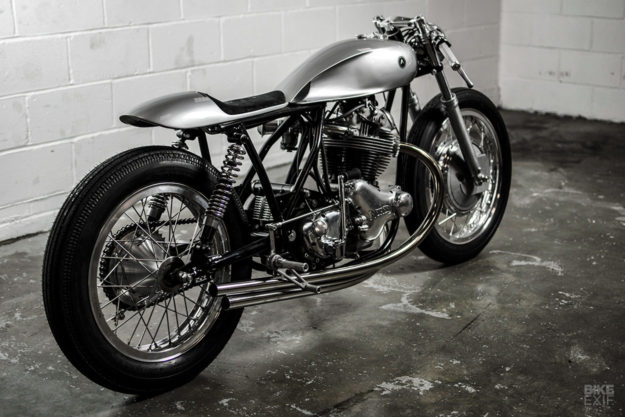
And so the ‘Type 16’ was birthed. But it certainly wasn’t an easy delivery—the guys had to strip the Norton down to nothing, and carefully plan their strategy. Then it was time to fabricate new aluminum bodywork.
“We reworked a lot of the frame so we could boat-tail the bodywork,” AF explain. “We wanted the boat tail to be exaggerated on this particular bike, even more so than what we’ve done before.”
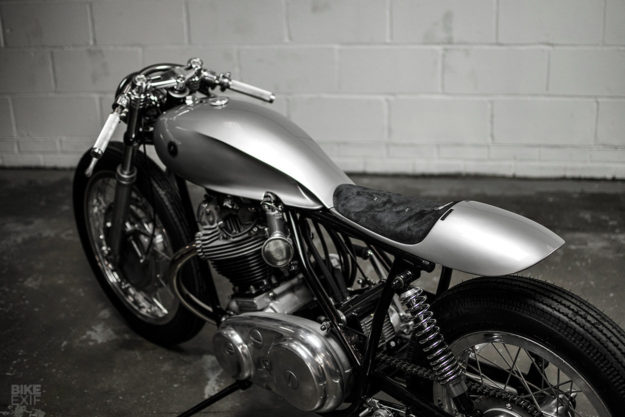
“The design features and lines of the tank meant we had a great blank canvas to work with. We wanted to keep the art deco-esque feel of the hole-in-the-tank feature (from Type 6), but just add a slight twist to it.”
The sculptural bodywork is intriguing, and flows in a quite remarkable way—as we’ve come to expect from AF. But it’s also integral to the Norton’s new oil management system.
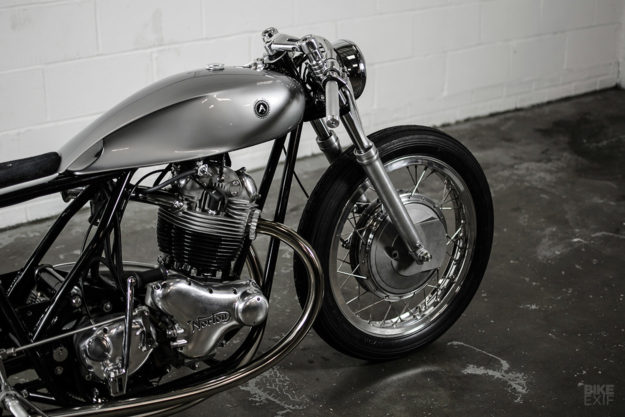
Initially, the team had planned to split the fuel tank into two (one half for fuel, and the other for oil), but the client wanted to maximise the bike’s fuel capacity. So they had to get creative.
Here’s how they pulled it off: “The frame’s main tube is pretty big so we turned this into an oil tank. But we needed more oil than the frame allowed, so we split this into the seat unit, which now also acts as an extended oil tank.”
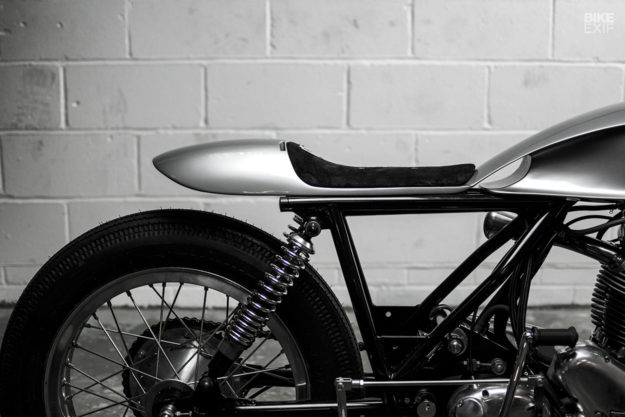
Since this Commando will spend its time in a hot climate, AF didn’t want the rear oil tank to toast their client’s butt. So they introduced a stealthy oil cooler to help manage the temperature. And they added a 10 mm ‘air gap’ between the metal that the seat pad sits on, and the wall of the actual oil tank.
The metalwork only tells part of the story. The air-cooled parallel twin engine was rebuilt with a high-compression head, and a two-into-one stainless manifold linking to an Amal carb.
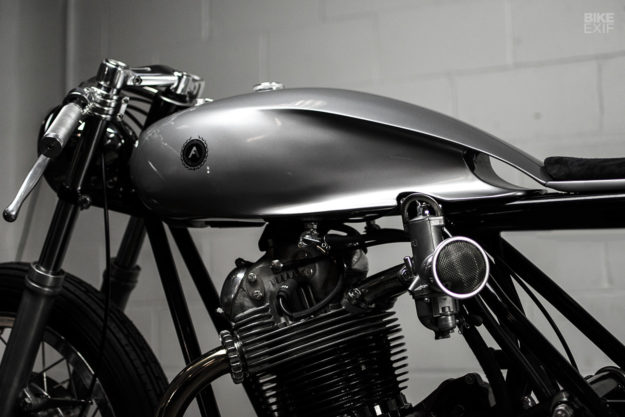
The carb has a stainless bracket for the choke, and the fuel tank features a cut-out for the cables to run through. The exhaust keeps Auto Fabrica’s signature look: swooping twin stainless steel pipes, equipped with internal baffles.
AF also saw to the wheels, with new 19F/18R Morad shouldered rims and stainless steel spokes. The front’s now laced to a Laverda drum brake hub, and the rear’s hooked up to a custom-made conical hub. (The rear drum brake is a classic race item of unknown origin.)
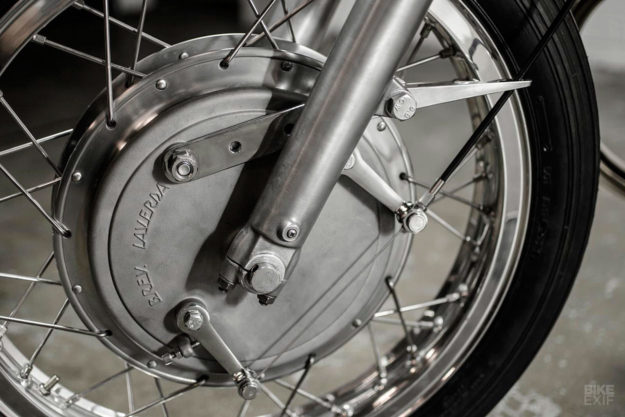
Up front, the guys rebuilt the front forks with uprated internals, and fitted new yokes of their own design. There’s a new set of chromed Hagon shocks doing duty out back.
The cockpit is mostly one-off pieces. That includes the one-piece, wraparound stainless steel handlebars, the switchgear and the grips, with Tarozzi rear sets mounted lower down.
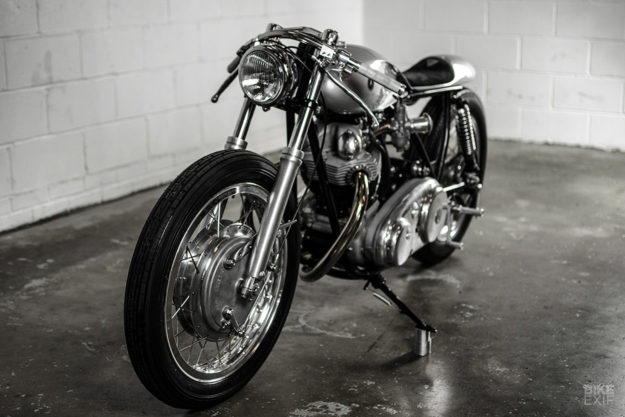
AF used an off-the-shelf headlight, but modified its mounting to be able to drop it down lower. The rear light is a pair of LEDs embedded in the frame tubes.
Auto Fabrica’s paint schemes are usually understated, and Type 16 maintains that tradition. It wears a simple coat of silver, with minimal branding. (The AF logo patch on the seat is a nice touch.)
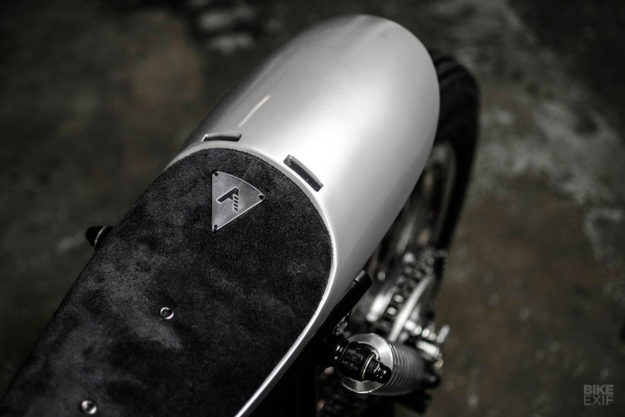
We loved the original Type 6 when we first saw it, but the Type 16 Norton ups the ante in a big way.
All that sublime bodywork on an iconic donor: What’s not to love?
Auto Fabrica | Facebook | Instagram
